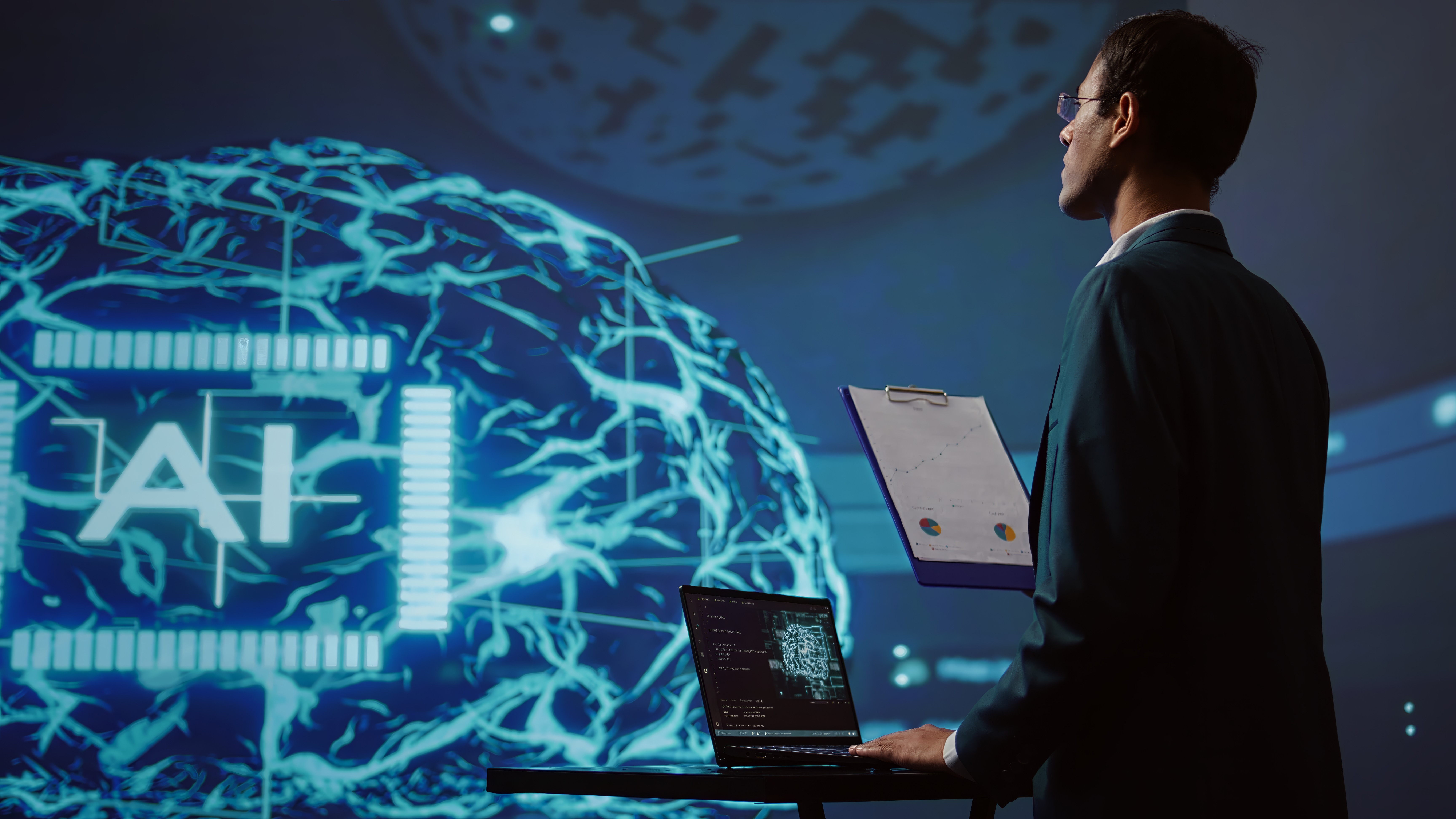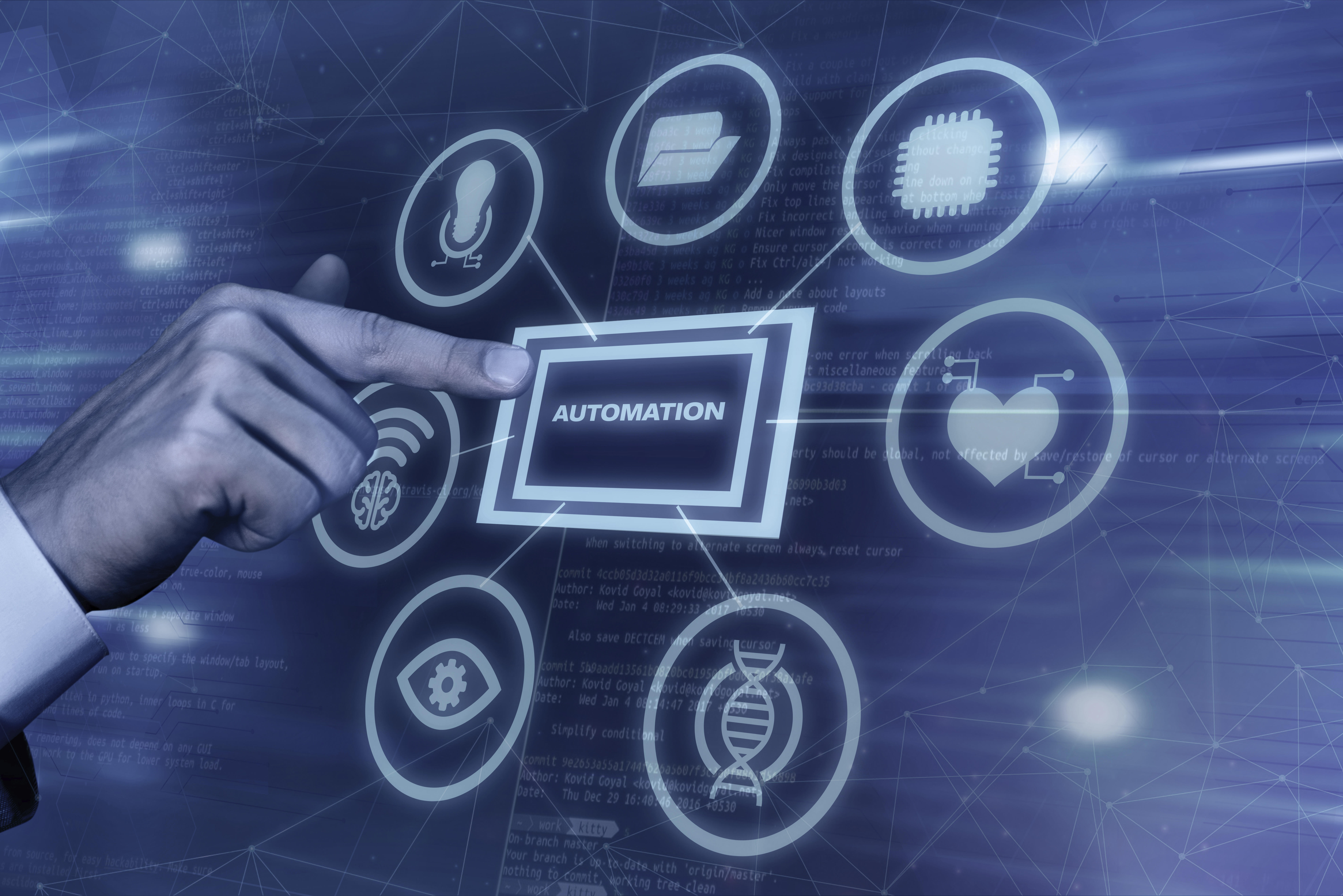Artificial Intelligence and Drug Discovery: A Complete Guide to the Future of Medicine
What is Artificial Intelligence (AI)?
Artificial Intelligence (AI) refers to the field of computer science focused on creating machines capable of performing tasks that typically require human intelligence. These tasks include problem-solving, pattern recognition, learning, and decision-making. AI systems use algorithms to analyse data, recognize patterns, and make predictions, mimicking cognitive functions that humans often perform. In various industries, AI is employed to automate processes, enhance efficiency, and drive innovations.
The integration of AI in drug discovery is revolutionizing the pharmaceutical industry. Traditionally, drug development was a lengthy and costly process, requiring years of research, clinical trials, and substantial financial investment. However, the advent of AI has brought transformative changes, accelerating the pace of research and enhancing the precision of drug design.
How is AI Changing the Landscape of Drug Discovery?
AI can analyse vast datasets of molecular information, helping researchers identify potential drug candidates more efficiently. By using machine learning algorithms, AI systems can predict how certain compounds interact with biological targets, significantly reducing the need for extensive trial-and-error experimentation. This not only speeds up the early stages of drug development but also lowers the cost involved in bringing a new drug to market.
Moreover, AI models can identify biomarkers for diseases, suggest novel drug formulations, and even predict the side effects of medications. As a result, AI in drug discovery holds the potential to uncover treatments for complex and rare diseases that were previously difficult to target. Its ability to process large amounts of data and make data-driven predictions enables pharmaceutical companies to develop more effective and personalized medicines, marking a significant shift in how drugs are discovered and developed.
What is the Traditional Drug Discovery Process?
Key Stages in Drug Development
The traditional drug discovery process involves several critical stages that can span over a decade and require significant investment. The journey begins with the discovery phase, where researchers identify potential drug targets, such as proteins or genes involved in a specific disease. Once a target is identified, preclinical testing follows, involving laboratory and animal studies to evaluate the safety and biological effects of potential compounds.
If successful, the drug candidate moves to clinical trials, which are conducted in three phases. Phase I focuses on assessing the safety and dosage of the drug in a small group of healthy volunteers. Phase II tests the drug's efficacy in a larger group of patients with the targeted condition. Finally, Phase III involves large-scale testing to confirm the drug's safety and effectiveness. After passing these trials, the drug is submitted for regulatory approval. If approved, the drug enters the post-market phase, where it continues to be monitored for safety and long-term effects.
Challenges in the Current Drug Discovery Process
While the traditional drug discovery process has led to numerous medical advancements, it faces several challenges. One of the major hurdles is the high cost and time involved. Developing a new drug can take over 10 years and cost billions of dollars, which makes the process not only lengthy but also financially demanding. Moreover, the success rate is relatively low, with many drugs failing in clinical trials due to safety or efficacy issues.
Another challenge is the complexity of diseases, especially those with unknown or multifactorial causes. For example, diseases like cancer or neurodegenerative conditions often require the identification of multiple biological targets, making drug discovery particularly difficult. Additionally, the process of identifying viable drug candidates often involves trial and error, leading to inefficiencies and resource wastage.
How is Artificial Intelligence Revolutionizing Drug Discovery?
AI’s Role in Data Analysis and Prediction
Artificial Intelligence is playing a transformative role in the drug discovery process, particularly through its ability to analyse and predict complex biological data. The vast amount of data generated from research, clinical trials, and patient records is often overwhelming for traditional methods to process. AI algorithms, particularly machine learning and deep learning models, can sift through massive datasets to identify patterns and correlations that might go unnoticed by human researchers. These AI systems can predict the potential efficacy of drug candidates, identify biomarkers for diseases, and even forecast how a drug will interact with the human body. This predictive capability dramatically shortens the research cycle and helps identify the most promising compounds more quickly and accurately.
AI in Drug Design and Molecule Screening
In drug design and molecule screening, AI is a game-changer. Traditionally, identifying a drug candidate required lengthy trial-and-error processes in the lab. However, AI systems can now predict the structure and properties of potential drug molecules based on vast chemical and biological data. Machine learning models are used to simulate how different molecules will interact with biological targets, which helps researchers design more effective drugs. AI also accelerates the screening process by rapidly analysing thousands of compounds to identify those with the highest likelihood of success.
What are the Key Techniques in Artificial Intelligence and Drug Discovery?
Machine Learning in Drug Discovery
Machine learning (ML) is a core technique in the application of artificial intelligence and drug discovery. By analysing large datasets, ML algorithms can uncover hidden patterns and make predictions about which compounds might be effective in treating specific diseases. ML models are used to predict the bioactivity of drug candidates, optimize chemical properties, and even identify new therapeutic targets. These systems learn from previous data, continuously improving their predictions as more information is fed into them. This ability to learn from data allows for faster and more accurate identification of potential drug candidates, ultimately reducing the time and cost involved in the early stages of drug discovery.
Deep Learning for Molecular Analysis
Deep learning, a subset of machine learning, plays a crucial role in molecular analysis during drug discovery. This technique uses artificial neural networks with multiple layers to model complex relationships in large datasets, especially when it comes to chemical structures and biological interactions. Deep learning models can process and analyse molecular data, predicting how compounds will behave within biological systems. These systems can also generate novel molecular structures with desired properties, such as improved binding affinity to specific targets. The ability of deep learning to analyse intricate molecular data enhances the precision of drug design, leading to the development of more effective drugs with fewer side effects.
Natural Language Processing (NLP) for Literature Review and Data Extraction
Natural Language Processing (NLP) is an AI technique used to process and extract valuable information from unstructured textual data, such as research papers, clinical trial reports, and medical journals. In drug discovery, NLP helps researchers conduct literature reviews more efficiently by automatically extracting relevant data from vast amounts of published studies. This process enables the identification of new research trends, drug targets, and existing knowledge gaps, saving time and enhancing the discovery process. Additionally, NLP can help with data integration by organizing information from diverse sources, making it easier for researchers to gain insights that inform the development of new drugs.
What are the Benefits of Using Artificial Intelligence in Drug Discovery?
Cost Reduction in Research and Clinical Trials
AI plays a crucial role in reducing the high costs traditionally associated with drug discovery and clinical trials. With the ability to predict the efficacy and safety of drug candidates at an early stage, AI reduces the number of candidates that need to be tested in clinical trials. This significantly cuts down on the expenses related to trial phases, as fewer drugs fail during later stages. Additionally, AI can help optimize clinical trial designs by identifying the most appropriate patient populations and predicting potential side effects, which improves the success rate and reduces costly trial failures. By automating data analysis and increasing precision, AI also lowers the overall operational costs involved in drug research.
Personalized Medicine and Precision Drug Discovery
Artificial intelligence is also paving the way for personalized medicine and precision drug discovery, where treatments are tailored to individual patients based on their genetic makeup and unique biological characteristics. By analysing patient data, including genetic, clinical, and environmental factors, AI can help design drugs that target specific disease pathways more effectively. This approach leads to treatments that are not only more effective but also minimize adverse side effects. Personalized medicine is especially important in treating complex diseases like cancer or autoimmune disorders, where a one-size-fits-all approach often proves ineffective. Through AI, the development of customized therapies is becoming a reality, ensuring that patients receive the most effective treatment based on their individual needs.
What are the Real-World Examples of AI in Drug Discovery?
Successful AI-Driven Drug Discovery Projects
Several real-world examples highlight the effectiveness of artificial intelligence in drug discovery. One of the most notable projects is the development of DSP-1181, a drug for the treatment of anxiety and depression. This drug was developed by the collaboration between Sumitomo Dainippon Pharma and Exscientia, an AI-driven drug discovery company. Using AI algorithms, Exscientia was able to design the drug in just 12 months, a process that would typically take years using traditional methods. The AI system analysed thousands of compounds, narrowing down the list to the most promising candidates, significantly speeding up the research phase.
Partnerships Between AI Companies and Pharmaceutical Firms
Collaborations between AI companies and pharmaceutical firms are becoming more common, further proving the potential of AI in drug discovery. For instance, Atomwise, an AI-driven drug discovery company, formed a partnership with Merck to identify promising compounds for a range of diseases. Atomwise uses deep learning to predict how small molecules interact with disease-causing proteins, significantly improving the speed and accuracy of the discovery process.
Similarly, BenevolentAI, an AI company focused on drug development, partnered with AstraZeneca to tackle diseases like chronic kidney disease and idiopathic pulmonary fibrosis. The collaboration leverages BenevolentAI’s platform, which uses AI to analyse vast amounts of biomedical data to identify new drug targets and repurpose existing drugs. These partnerships are a testament to the growing integration of AI in the pharmaceutical industry, which helps enhance drug discovery capabilities and bring novel treatments to market faster.
What are the Challenges in Implementing AI in Drug Discovery?
Data Quality and Availability
One of the major challenges in implementing artificial intelligence and drug discovery is the quality and availability of data. AI algorithms rely heavily on large datasets to identify patterns and make accurate predictions. However, in the context of drug discovery, the data required is often fragmented, incomplete, or of varying quality. For example, clinical trial data might be sparse, poorly structured, or not standardized, making it difficult for AI systems to analyse effectively. Furthermore, access to high-quality data can be limited due to privacy concerns or proprietary restrictions. Without comprehensive, clean, and standardized datasets, AI models may struggle to deliver reliable results, potentially leading to delays in drug development or inaccurate predictions.
Ethical Considerations and Biases in AI Models
Ethical considerations and biases in AI models present another significant challenge in drug discovery. Since AI algorithms are trained on historical data, they may inadvertently learn biases present in the data. For example, if a dataset predominantly includes data from one demographic, such as a specific age group or ethnicity, the AI model may produce biased results that are not applicable to the broader population. This could lead to drugs that are less effective or even harmful to underrepresented groups. Furthermore, ethical issues arise when AI models are used to make decisions about patient safety or treatment efficacy. Ensuring fairness, transparency, and accountability in AI-driven decisions is essential to avoid unintended negative consequences, especially in the healthcare sector.
Regulatory Hurdles
Regulatory hurdles also pose a significant challenge to the adoption of AI in drug discovery. Regulatory bodies, such as the FDA or EMA, have established rigorous guidelines for drug development and approval, but AI-driven methods often fall outside the scope of traditional frameworks. For instance, AI’s ability to rapidly design and test new drug candidates might require new regulatory standards to assess its safety and efficacy. As AI technologies evolve, regulatory agencies must develop updated frameworks that can evaluate AI models’ decision-making processes, ensuring they meet the required safety and quality standards. The lack of clear and consistent regulations can slow the integration of AI into drug discovery, limiting its potential benefits.
What is the Future of Artificial Intelligence in Drug Discovery?
Trends and Innovations to Look Out For
The future of artificial intelligence in drug discovery is poised for ground-breaking innovations. One key trend is the integration of AI with genomic data. As genomics continues to evolve, AI will increasingly be used to analyse genetic information to identify new drug targets and create personalized therapies. By examining an individual’s genetic makeup, AI can help develop drugs that are tailored to treat specific genetic disorders or mutations, further advancing the field of precision medicine.
Another trend is the growing use of AI-driven drug repurposing. With the vast number of drugs already in existence, AI can help identify new uses for these compounds, significantly shortening the development timeline. This approach has gained momentum, especially during the COVID-19 pandemic, when AI was employed to repurpose existing drugs for new viral treatments.
Additionally, the field of predictive modelling is advancing rapidly, where AI is used to simulate the interaction of drugs with biological systems. This will improve the accuracy and efficiency of testing, allowing researchers to predict how a drug will behave in the human body before clinical trials begin, thus reducing the reliance on animal testing.
How to Get Started with AI in Drug Discovery?
Skills and Tools Needed to Work in AI-Driven Drug Discovery
To get started in AI-driven drug discovery, it is essential to have a solid foundation in both artificial intelligence and the principles of drug discovery. Key skills include proficiency in machine learning, data analysis, and programming languages such as Python or R. These languages are widely used in AI development and data manipulation tasks, making them crucial for anyone working in the field. Additionally, knowledge of bioinformatics, cheminformatics, and computational biology is beneficial as these areas overlap with AI in drug development.
Understanding how to work with large datasets is vital, so familiarity with data processing tools like Pandas, NumPy, and TensorFlow for machine learning will be necessary. Additionally, proficiency in tools like AutoDock for molecular docking simulations, DeepChem for AI-driven chemistry research, and PyTorch for deep learning can give you a competitive edge in drug discovery projects. Moreover, understanding statistical modelling and predictive analytics is key to making accurate predictions about drug efficacy and safety.
Recommended Courses and Resources for Beginners
For those looking to enter AI in drug discovery, there are several online courses and resources that can help build foundational knowledge and hands-on experience. Coursera and edX offer numerous courses on machine learning, AI, and drug discovery, including specialized programs like “AI for Drug Discovery” and “Machine Learning for Healthcare.” These platforms provide a combination of theoretical knowledge and practical applications, making them ideal for beginners.
Additionally, Fast.ai offers free courses that dive into deep learning techniques, while Kaggle provides hands-on practice with real-world datasets. For those interested in bioinformatics and computational biology, resources like NCBI and RosettaCommons offer tutorials and tools for learning drug discovery concepts from a scientific perspective.
Conclusion
Artificial intelligence and drug discovery have made significant strides in transforming the pharmaceutical landscape by enhancing speed, efficiency, and precision. From predictive modelling to molecule screening, AI is enabling researchers to design and test drugs faster, reducing costs and bringing new treatments to market more quickly. Looking ahead, the role of AI in medicine will continue to expand, especially in personalized treatments and precision drug development. As AI technologies evolve, they will not only streamline drug discovery but also shape a more tailored, data-driven approach to healthcare, improving patient outcomes worldwide and ushering in a new era of medical advancements.








